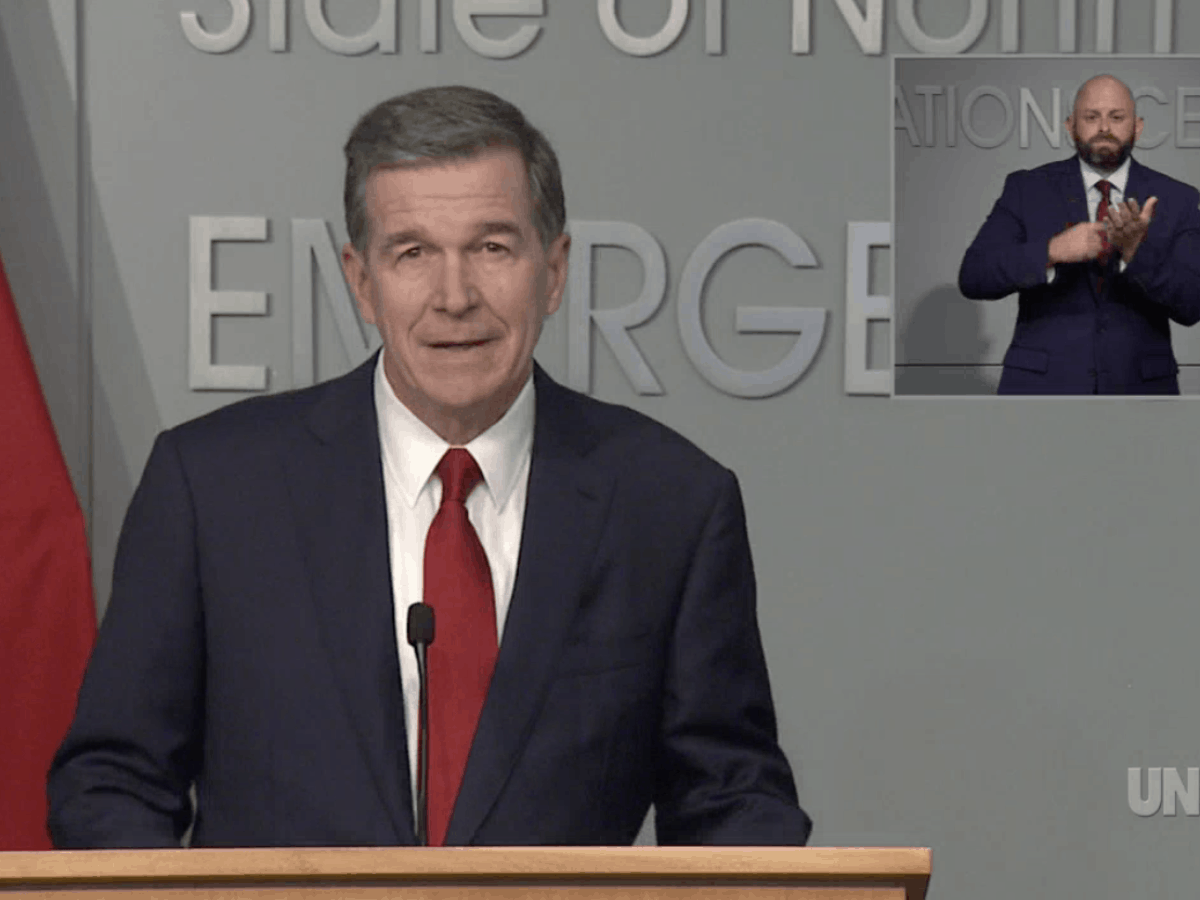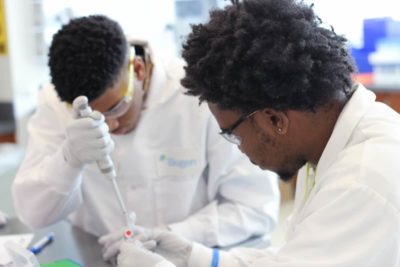
The following is a press release from Governor Roy Cooper
Governor Roy Cooper and North Carolina Department of Health and Human Services (NC DHHS) Secretary Dr. Mandy Cohen were joined today by education and health leaders to announce health and safety plans for K-12 public schools for the new school year. Schools will open for in-person instruction under an updated Plan B that requires face coverings for all K-12 students, fewer children in the classroom, measures to ensure social distancing for everyone in the building, and other safety protocols.
“The most important opening is that of our classroom doors. Our schools provide more than academics; they are vital to our children’s’ health, safety and emotional development,” said Governor Cooper. “This is a difficult time for families with hard choices on every side. I am committed to working together to ensure our students and educators are as safe as possible and that children have opportunities to learn in the way that is best for them and their families.”
The Strong Schools NC Public Health Toolkit outlines the updated requirements for Plan B. Districts may choose to operate under Plan C, which calls for remote learning only, and health leaders recommend schools allow families to opt in to all-remote learning. Modifications have been made to Plan B since it was released in June to make it more protective of public health.
“After looking at the current scientific evidence and weighing the risks and benefits, we have decided to move forward with today’s balanced, flexible approach which allows for in-person instruction as long as key safety requirements are in place in addition to remote learning options.” said NCDHHS Secretary Mandy Cohen, MD. “We will continue to follow the science and data and update recommendations as needed. We ask every North Carolinian to do their part to slow the spread of COVID-19 and follow the three W’s: Wear a face covering when in public, Wait 6 feet apart, Wash your hands.”
Governor Cooper also announced that the state will provide at least five reusable face coverings for every student, teacher and school staff member in public schools. In June, the state provided packs of personal protective equipment to schools that included a two-month supply of thermometers, surgical masks, face shields and gowns for school nurses and delegated staff who provide health care to students.
“Educators and stakeholders across our state have worked tirelessly to reopen our school buildings safely for our students, teachers and staff. Today, we take another critical step towards that goal. We also know families need to choose the option that is best for their children, so all school districts will provide remote learning options,” said Eric Davis, Chairman of the State Board of Education.
“In-person education is important for children, and it happens in the context of a community. This plan strikes the right balance between health and safety and the benefits of having children learn in the classroom. We must all continue with proven measures to reduce COVID-19 transmission like wearing a face covering, keeping distance between people, and frequent hand and surface cleanings so we can move closer to safely re-opening public schools,” said Dr. Theresa Flynn, M.D., M.P.H., FAAP, a practicing pediatrician who serves on the Board of Directors for the North Carolina Pediatric Society and joined today’s announcement.
Under Plan B, schools are required to follow key safety measures that include:
- Require face coverings for all teachers and students K-12
- Limit the total number of students, staff and visitors within a school building to the extent necessary to ensure 6 feet distance can be maintained when students/staff will be stationary
- Conduct symptom screening, including temperature checks
- Establish a process and dedicated space for people who are ill to isolate and have transportation plans for ill students
- Clean and disinfect high-touch surfaces in the school and transportation vehicles regularly
- Require frequent hand washing throughout the school day and provide hand sanitizer at entrances and in every classroom
- Discontinue activities that bring together large groups
- Limit nonessential visitors and activities involving external groups
- Discontinue use of self-service food or beverage distribution
In addition, schools are strongly recommended to follow additional safety measures that include:
- Designate hallways and entrance/exit doors as one-way
- Keep students and teachers in small groups that stay together as much as possible
- Have meals delivered to the classroom or have students bring food back to the classroom if social distancing is not possible in the cafeteria
- Discontinue activities that bring together large groups
- Place physical barriers such as plexiglass at reception desks and similar areas
More details can be found in the Strong Schools NC Public Health Toolkit. Read the Screening Reference Guide for schools and the Infection Control and PPE Guidance.
In addition to the announcement about school plans, Governor Cooper shared that North Carolina will remain paused in Safer At Home Phase 2 after the current Executive Order expires on Friday, July 17.
“As we continue to see rising case numbers and hospitalizations, we will stay in Safer At Home Phase 2 for three more weeks,” said Governor Cooper. “Our re-opening priority is the school building doors, and in order for that to happen we have to work to stabilize our virus trends.”
School Groups on Today’s Public School Announcement
“While all school re-entry plans have their challenges during this pandemic, our superintendents, principals, and other school leaders will continue to prioritize student and staff safety in reopening schools under the cautious parameters outlined today by the Governor,” said North Carolina Association of School Administrators Executive Director Katherine Joyce. “We look forward to continuing work with the Governor, the General Assembly, and other state leaders to ensure our schools have the support needed to get student learning back on track in the safest manner possible in each local district.”
“I recognize Governor Cooper faced a very difficult decision. The good news is that local school boards can now begin to officially put their school reopening plans in motion,” said Brenda Stephens, President of the North Carolina School Board Association. “While the current situation may not be ideal for all, I’m confident North Carolina’s educators will continue to provide students with the best education possible.


